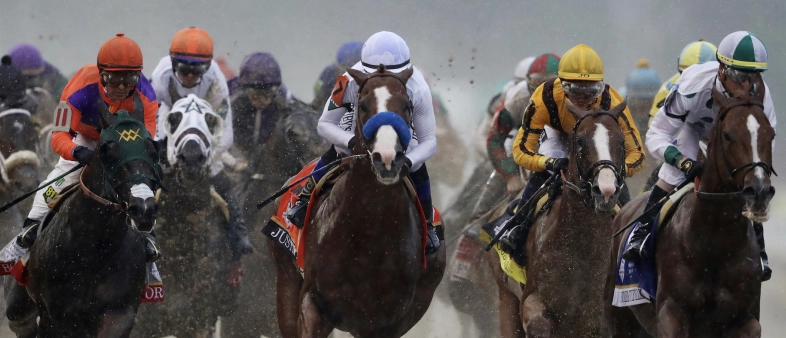Horse Racing: All you need to know, the types, terms and bets

According to some people, sports betting and bookmakers were born on the horse racing track. At first glance, everything is pretty straightforward: I choose a horse, bet on it, and if it comes in first, I win my bet. However, when betting on horse racing, as in any other sport, there are nuances. In this article, we will tell you about the basic and most important things to know.
Horse racing is one of the most popular sports countries such as Britain, Australia and the UAE. Competitions are held at different distances and on a variety of surfaces (grass, sand, etc.), and this already shows the differences necessary to understand before placing a bet.
Types of horse race betting
Bet on the winner. It is as simple as that. The most common type of bet here is on the winner of the race. You choose a horse, and if it is the first to the finish line, you will win your bet. You can also make the opposite bet on a horse, that is, to predict the horse will not finish first.
Betting on prize-winners. Of course, it is very difficult to predict the winner of the race. In order to increase the probability of winning, bookmakers offer the option of betting on the top three prize-winners. For you to win, the horse you choose must finish in the top three. This type of betting can also be called “Show” in the betting lines.
It is also worth noting that the number of horses that place can vary in different races. And if there are more than three of them and the horse you choose finishes in one of the winning places you will also win. This type of bet is called Place or “Prize”.
Betting on winners with the correct sequence. This bet requires you to have excellent forecasting skills in order to win. Here, the player must guess the horses that will finish both first and second in the race. Variations of this bet, such as giving the player the opportunity to randomly select the places are also offered.
Who places higher. In this bet, the player chooses two jockeys to watch and predicts who will place higher at the end of the race. The player will focus on these two throughout the entirety of the race.
Horse betting strategies
Trixie. The most popular strategy of the game for horse racing. However, it does not, of course, guarantee a win 100% of the time. As in other sports, upsets can occur, where the favourites prove to be inferior for the day and lose to a lesser opponent.
On the first races of the day, you need to choose three favourites on different racetracks with a factor no lower than 2.00. Then the selected horses should be combined into one bet called “Trixie”. This means you need to make one triple express bet and three doubles.
Example:
- Horse racehorse 1q horse 2.
- Horse racehorse 2q horse 3.
- Horse racehorse 1q horse 3.
- Racehorse 1 q horse 2 - horse 3.
The amount of the bet for each - £1.50 (in total – six dollars). The odds for any of the favourites to win are 2.00. If two of your three horses win, you win your bet, and if all three horses are prize winners, then your win will be £31. A similar system can be used when betting on two favourites in the initial (morning) races. Only now you need to put two ordinaries on the favourites and one express.
Al Capone’s accountant’s strategy. The next strategy of betting on horse racing, according to legend, was created by the accountant of the famous American gangster. The essence of this bet is that the player finds odds that are overstated by the bookmakers on favourites and fluctuate around 4.00. The player then places bets on several favourites at once. When one horse wins, the player stays in the positive.
What to pay attention to when betting on horse races. Tips
The age of the horse. Undoubtedly, the younger racehorses have better chances than the older horses at short-distance races. However, if you are looking at long-distance races, then the experience will play the main role.
Running length. Before you make a bet, you need to know what distance the race will be and how long the break before the race is. For sprints (short-distance races), the horse will need to rest at least a month before. And if the race is long-distance, then a big break is optional but undesirable.
Jockey’s weight. The average weight of a jockey is 132 lbs. Although novice athletes often exceed this amount in order to improve their balance. So, you can infer that the lighter the jockey, the more experienced he is and therefore he has a better chance of winning.
Weather. As in other outdoor sports, unexpected results can arise due to changes in the weather. Therefore, before you place a bet, it is necessary to clarify the weather conditions at the racetrack.













